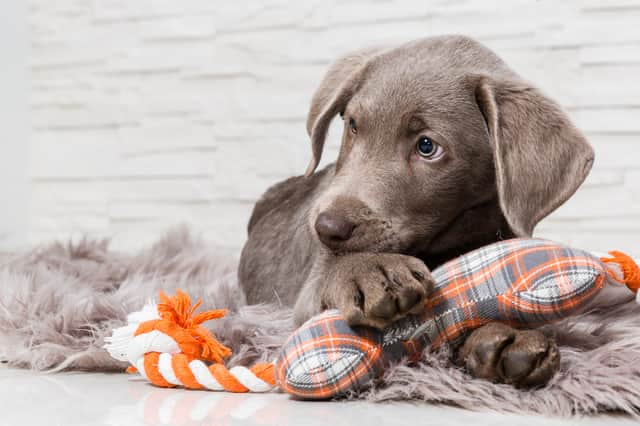Here's how to tell if your dog has separation anxiety


For dog owners it's hard to imagine life without your pet - their little personalities make a house feel like a home, and for many people their dog is the centre of their world.
It turns out, for your canine friend, the feeling is mutual. For some dogs - when their owner leaves for work, goes to the gym or on holiday - the feeling of being apart from their human can cause them high levels of distress, which is also known as ‘separation anxiety’.
What can trigger separation anxiety?
Advertisement
Hide AdAdvertisement
Hide AdAccording to the pet food brand Canagan, dogs are very social animals that naturally live in family groups and have evolved over time to become domestic animals, living side-by-side with humans.
This pack mentality means that they view their owner as their leader - a dependable figure vital to survival, so being alone can feel very unsettling. When you first get a dog, especially if they’re a puppy or recently re-homed, the instant bond and feeling of protection can be difficult to detach from.
The following situations can trigger separation anxiety
- An abrupt change in your schedule such as getting a new job which sees you transition from spending the majority of your time at home to leaving for an office five days per week
- Uprooting the family to a new home - unfamiliar surroundings can take time to get used to
Advertisement
Hide AdAdvertisement
Hide Ad- The sudden absence of a resident family member, whether they’re moving out to start a newchapter or a more sombre situation like a break-up or death
Spotting the signs
For a highly dependent dog, the first 15 minutes after you leave are the hardest. Physiological signs of fear include a quickened heart rate, heavier panting, increased saliva and the need to go to the toilet.
Once you leave, these heightened feelings can cause a dog to act out in the following ways -persistent howling, causing destruction, escaping, pacing up and down in a fixed pattern or turning in a circle or urinating or defecating.
After a frantic episode, your dog may settle and chew on something that carries your scent. When you return home, they may seem besides themselves with excitement - spinning, jumping and howling with joy.
What can I do to help my dog?
Advertisement
Hide AdAdvertisement
Hide Ad- Find a ‘safe space’ for your dog to relax - Create a cosy space for your pet to relax in so they don’t associate it with isolation and add a few creature comforts including a couple of chew toys, and an item of clothing you’ve worn recently
- Train your dog for ‘alone time’ - Train your dog to stay behind a stair gate, as they aren’t as intimidating as shutting a door
- Settle your pet before you head off - Before you leave for the day it's worth walking them, ensuring they’ve gone to the toilet or feeding them a small meal to help them relax
- Include your pet if they can’t face total independence - To minimise stress for your pet, find opportunities to include them. Ask your boss if you can bring them into the office. Allow them to spend time with close friends and family, who you can call on to dog-sit if you have plans. If you’d like to go on holiday, there’s always the option of travelling with your pet